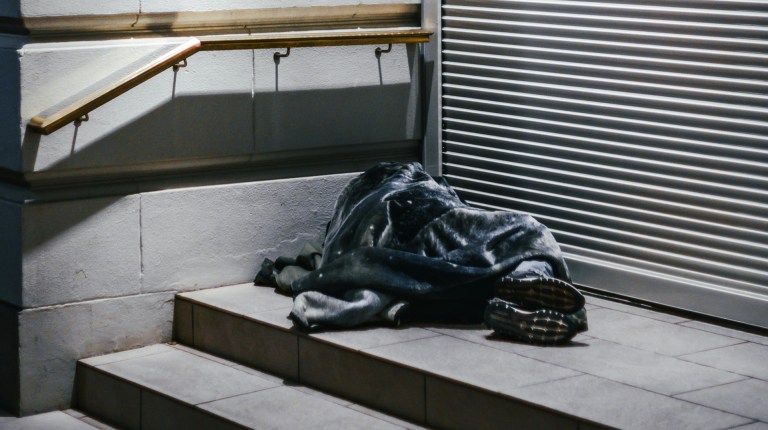Zoopla’s measurement of the private rental sector differs from the Office for National Statistics’ (ONS) method for tracking rents, which is currently showing an 8.7% increase in the year up to October 2024.
The property site’s rental index tracks new lets, showing the difference between when a home becomes vacant and is re-let on the open market whereas ONS looks at both the 25% of new lets in the market and the 75% of homes where renters aren’t moving.
But Zoopla’s analysis showed demand remains high for private rented properties with enquiries nearly a third higher than pre-pandemic levels.
High prices and competition are affecting renters on lower and middle incomes with no access to social housing, with almost 30% of private renters receiving full or partial support for rental costs via universal credit.
Ben Twomey, chief executive of Generation Rent, said Labour’s Renters’ Rights Bill will offer greater security in 2025 – but housing benefit is not keeping pace with rising rents and low-income tenants are paying the price.
“Everyone needs a safe, secure and affordable home. But renters across the UK are facing soaring rents which are far outstripping our earnings,” said Twomey.
Advertising helps fund Big Issue’s mission to end poverty
“The government’s Renters’ Rights Bill is a good start in giving renters more protection from eviction, but there are very few measures in the bill to give us the breathing space we need from the cost of renting.
“The government must act urgently to slam the brakes on rising rents, whilst unfreezing the local housing allowance rate will protect families on low incomes from poverty and homelessness.”
Lucy Tiller, policy and public affairs manager at the Renters’ Reform Coalition, called for the government to set up a national rental affordability commission, to find ways to halt soaring rents.
Why are so many landlords selling up?
Donnell said private landlords will “continue to play a critical role in supporting rental supply” but Labour’s upcoming Renters’ Rights Bill is sparking claims that many landlords are looking to sell up. Tighter regulations as well as tax changes are reportedly leaving some landlords disillusioned.
Landlord lobby group National Residential Landlords Association (NRLA) has warned that the number of tenants facing homelessness due to their landlords selling up has increased by a third in the last year.
The group said government data shows a third of landlords are planning to sell properties they rent out in the next two years, up from 22%, but just 7% are planning to provide new homes to rent, down from 11% in 2021.
Advertising helps fund Big Issue’s mission to end poverty
The NRLA also cited separate government figures that showed the number of private rented households that needed council support to prevent homelessness after a landlord decided to sell their property has increased.
A total of 5,4000 private rented households were in that position between October and December 2023 compared to 7,130 households between April and June 2024.
Ben Beadle, chief executive of the NRLA, said: “Right across the country it is tenants who are suffering as landlords decide to sell up. No amount of changing the rules about when landlords can sell will address the central problem in the rental market, namely a chronic shortage of homes to meet demand.
“What tenants need is greater choice. That means encouraging and supporting the vast majority of responsible landlords to stay and continue to provide decent quality housing.”
However, the threat of a landlord exodus has been disputed by pro-renter groups.
The English Housing Survey has showed that, despite warnings of a mass walkout, the private rented sector has remained broadly stable in size in recent years.
Advertising helps fund Big Issue’s mission to end poverty
The most recent survey found that the sector accounted for 4.7 million households, representing 19% of England’s total. It noted that the sector has doubled in size since the early 2000s but has remained around 19% or 20% of the total proportion of homes over the last decade.
It is also unclear to whom landlords are selling their properties. The property remains in the market when a landlord decides to sell and can either be bought up by another landlord or offer another household to buy it outright.
With Labour’s Renters’ Rights Bill expected to be in place by next summer, time will tell how it will impact on a private rental sector that has seen new record-high rental prices become a monthly norm.
Do you have a story to tell or opinions to share about this? Get in touch and tell us more. This Christmas, you can make a lasting change on a vendor’s life. Buy a magazine from your local vendor in the street every week. If you can’t reach them, buy a Vendor Support Kit.









